In China, no break on Chinese New Year's Eve next year
Employees in China have little annual leave to begin with - what happens when the Chinese authorities announce that Chinese New Year's Eve will not be a holiday in 2024?
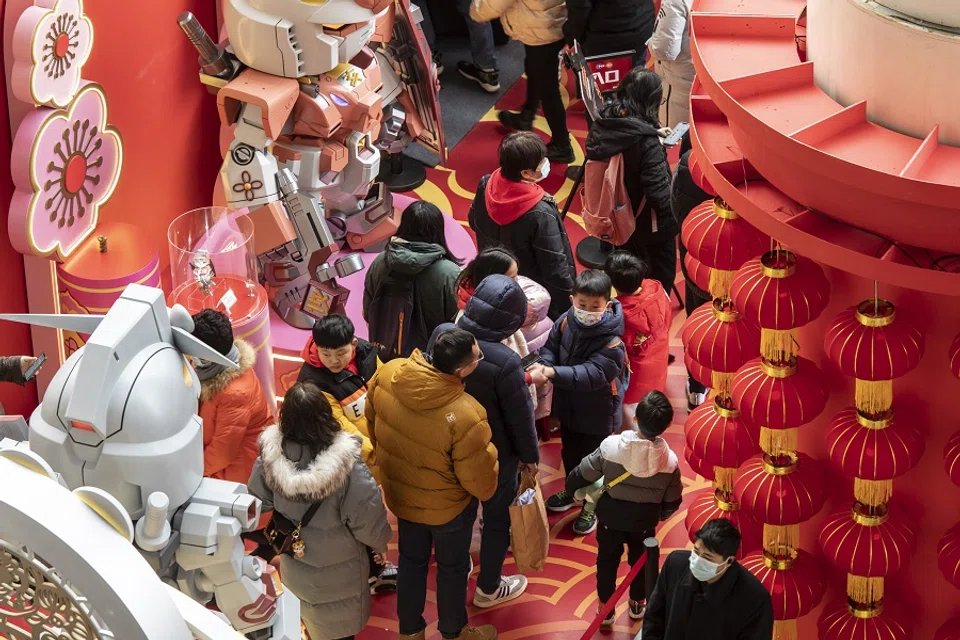
Good news - the Spring Festival or Chinese New Year holiday next year will last eight days in China. Bad news - the eve is not included.
After China's State Council released the 2024 Spring Festival holiday schedule on 25 October, the topic "no holiday on Chinese New Year's Eve" quickly made it to the top of Weibo's trending searches, with netizens leaving angry comments.
China's National Development and Reform Commission (NDRC) later posted on its official Weibo account that the highlight of next year's holiday schedule includes the longest-ever Spring Festival holiday, which can be extended to nine days: apart from the official eight days from the first day of Chinese New Year to the eighth day (Saturday, 10 February to Saturday, 17 February), a ninth day can be added by going on paid leave on 9 February, Chinese New Year's Eve.
The NDRC described the nine-day Spring Festival holiday as the first present of the new year, noting that although Chinese New Year's Eve is not an official holiday, employers are encouraged to flexibly arrange time off.
It highlighted that although employees would still need to trade in their weekends for the longer 8+1 Spring Festival holiday, the new arrangement would better meet people's needs for travel and rest and encourage them to take paid leave.
...every Chinese New Year's Eve has been a public holiday since 2015.
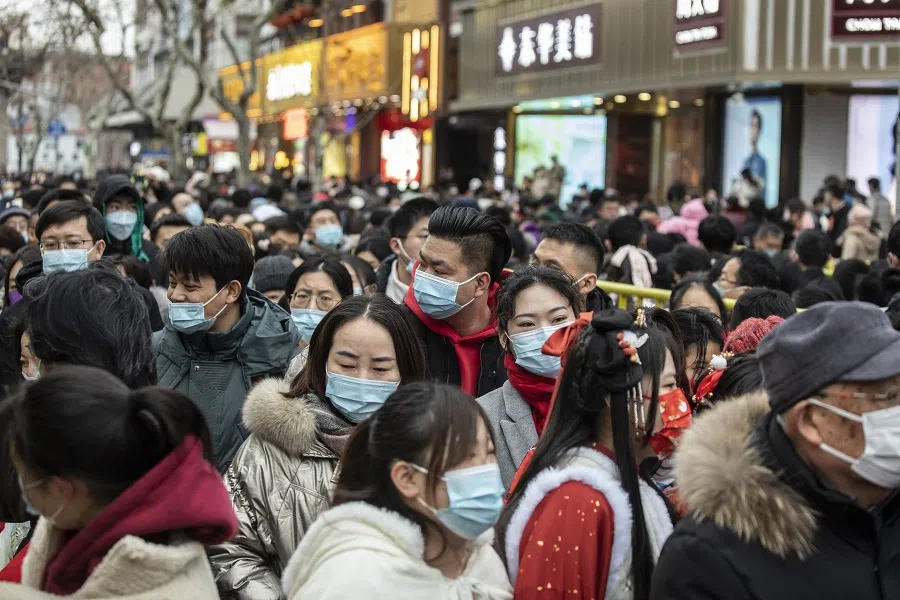
Chinese netizens dubbed the NDRC article the "Best Essay". Not only did the article fail to quell discontent, but it added fuel to the fire and attracted a slew of negative comments among over 130,000 reposts.
Why so angry?
Since the founding of the country in 1949, the official Spring Festival holiday has always lasted three days, with adjustments made to the actual dates.
Before 2007, the Spring Festival holiday fell on the first three days of the first lunar month. At the end of 2007, it was moved forward to encompass Chinese New Year's Eve, and the first two days of the first lunar month. The change was to be implemented from 2008.
At the end of 2013, it was changed back to the first three days of the first lunar month. In 2014, Chinese New Year's Eve was not a holiday; however, following severe backlash that year, every Chinese New Year's Eve has been a public holiday since 2015.
This is why, although it is within the law not to have a holiday on Chinese New Year's Eve, most people would find this extremely unreasonable and inconsiderate.
They do not think that their employers and workplaces would have the "conscience" and magnanimity to let them go on leave on Chinese New Year's Eve...
For most Chinese, reuniting with their family on Chinese New Year's Eve, having reunion dinner and welcoming the new year together is one of the most important traditions of Chinese New Year. If Chinese New Year's Eve is spent working, this means less time to spend with family; preparing reunion dinner becomes impractical, while people working out of town might not even be able to rush home.
However, the public's fury may have also upset Chinese authorities, who probably felt that employers generally would not request all employees to work on Chinese New Year's Eve anyway, even if it is not an official holiday. So, this arrangement in fact offers most people an additional "invisible" day off.
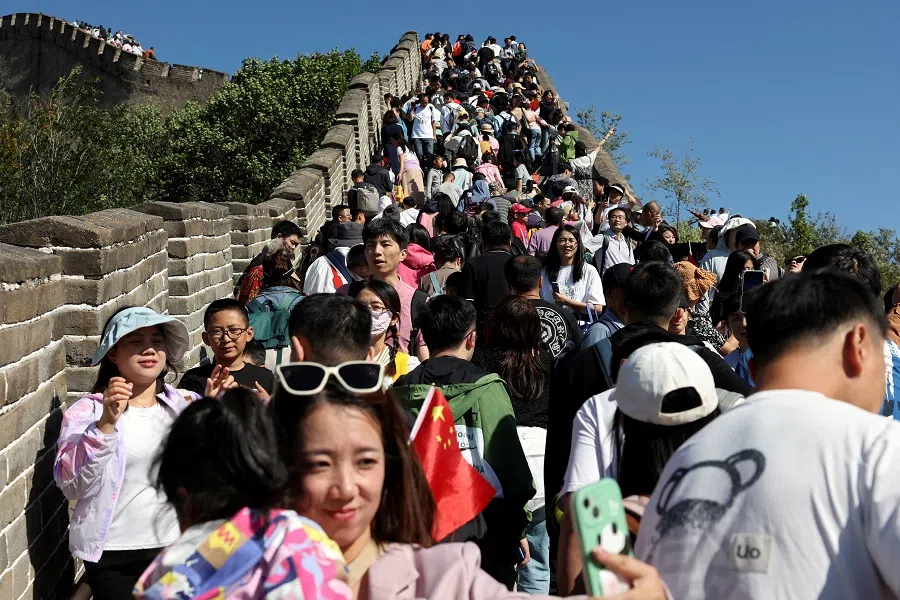
Yet most netizens believe that it is totally unreasonable to let employers decide if employees should rest and reunite with their families on Chinese New Year's Eve.
They do not think that their employers and workplaces would have the "conscience" and magnanimity to let them go on leave on Chinese New Year's Eve, and for employees to use the already insufficient annual leave to rest on a day that ought to have been a holiday is unjust. Netizens also said that this arrangement would not work for newcomers who have yet to be given paid annual leave.
Some netizens sneered that since the rights and interests stated in labour laws are not guaranteed, plain encouragement is not enough to "morally blackmail" businessmen into giving their workers a break on Chinese New Year's Eve. In fact, it is disgusting to publicise this as a nine-day holiday.
They also mocked themselves - not only are they unable to rest on Chinese New Year's Eve, their holiday has to be traded in with weekends. The Chinese people are indeed "urban slaves" and "mules on holiday"!
Far from enough
To enjoy long festival holidays, Chinese workers need to trade in some of the holidays given with mandatory "make-up work days". During such seasons, angry netizens would go on social media to complain about the situation, making it a trending topic on Chinese social media in recent years. The NDRC's assertion that there is no other choice and that this arrangement is better than having none also infuriates the netizens.
The idea of make-up work days in China started after the 1997 Asian financial crisis. To boost the sluggish economy and drive domestic demand and tourism consumption, the Chinese State Council announced in 1999 that the Labour Day and National Day holidays would be extended to three days each. And by shortening the weekends before and after the holidays, two seven-day Golden Week holidays were created.
There were times when Chinese workers even put in a super long work week of seven straight days in exchange for a holiday.
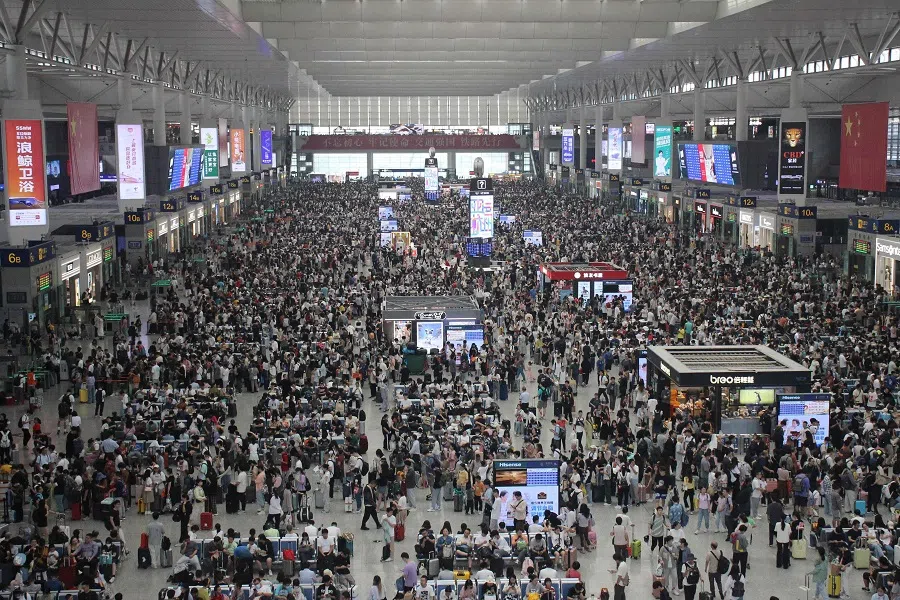
Initially, because the holidays were longer and the internet was less developed, people did not complain about having make-up work days. But in 2008, the Labour Day holiday was shortened to three days, while the Qingming Festival, Dragon Boat Festival and Mid-Autumn Festival were made official holidays. To adjust a one-day break into a three- or five-day break, more make-up work days were introduced, greatly affecting employees' work lives. There were times when Chinese workers even put in a super long work week of seven straight days in exchange for a holiday.
As for whether the policy is reasonable, the authorities do not want to break up the holidays or have a "standalone" work day following a holiday, followed by off days; while the people want regular work weeks and do not want to work six or seven days in a row.
In fact, in October 2013, the authorities conducted an online survey on satisfaction with holiday arrangements. According to China News Service, more than 2 million people responded in the first three days of the survey. Looking at the comments, nearly 80% clearly stated they were "not satisfied" with trading their weekends for seven-day Chinese New Year and national day holidays, or three-day breaks for the rest of the holidays; most people were also against purposely creating long holidays.
The authorities never released the final results of this survey. But in November 2013, again it called for netizens to vote on three plans for holiday arrangements. Plan A: seven days off for Chinese New Year with make-up work days, no make-up work days for other holidays; Plan B, seven days off for Chinese New Year, five days off for national day holiday with make-up work days, three days off for other holidays with make-up work days; and Plan C, no change to existing holiday arrangements and no make-up work days only when a holiday falls on a Wednesday.
...with only five days for those in the first ten years of employment and 15 days only when one reaches 20 years of employment, it lags far behind the US and Europe...
The results of this November survey were likewise never released, but according to media reports then, Plan C received the most votes. And from the looks of the current holiday arrangement, that result has been adopted.
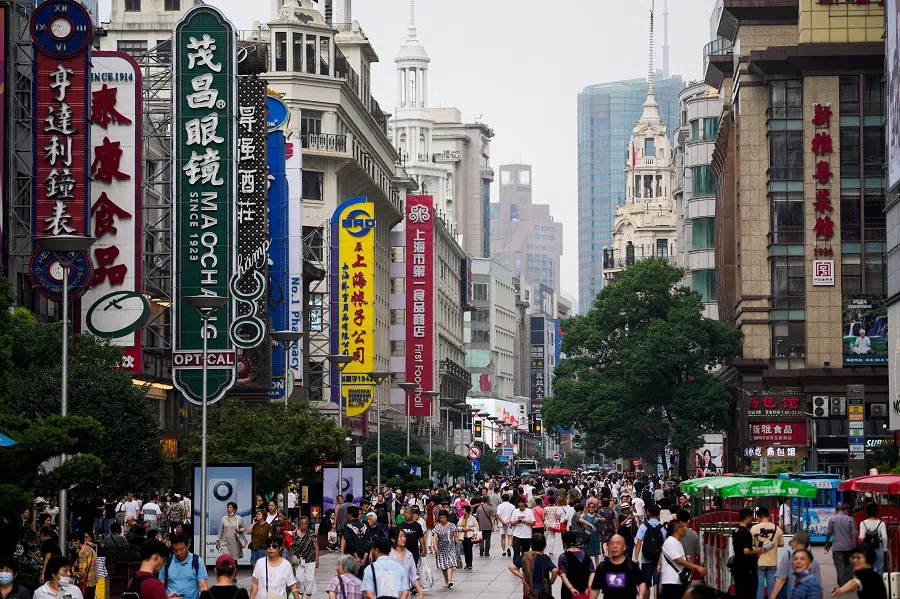
Most Chinese would want their holidays without make-up work days, while one would imagine the authorities also do not want to be criticised each year for making those adjustments. And to a large degree, the authorities having "no choice but to make holiday adjustments" and the people's great unhappiness at these adjustments stems from insufficient paid annual leave and its ineffective implementation in China.
China has 11 days of public holidays, which is not too few when compared to many other developed countries. But when it comes to annual leave, with only five days for those in the first ten years of employment and 15 days only when one reaches 20 years of employment, it lags far behind the US and Europe, which it is often compared to.
...in many private firms it is difficult to go on leave, with "leave discrimination" and "leave shaming"...
In the US, though there is no legal stipulation, most employees would have ten days of annual leave in the first year of employment, and this would increase each year thereafter. Many EU countries have more than 20 days of stipulated annual leave.
With annual leave already far behind other countries, many Chinese netizens also highlighted that in many private firms it is difficult to go on leave, with "leave discrimination" and "leave shaming" where people are criticised for going on leave.
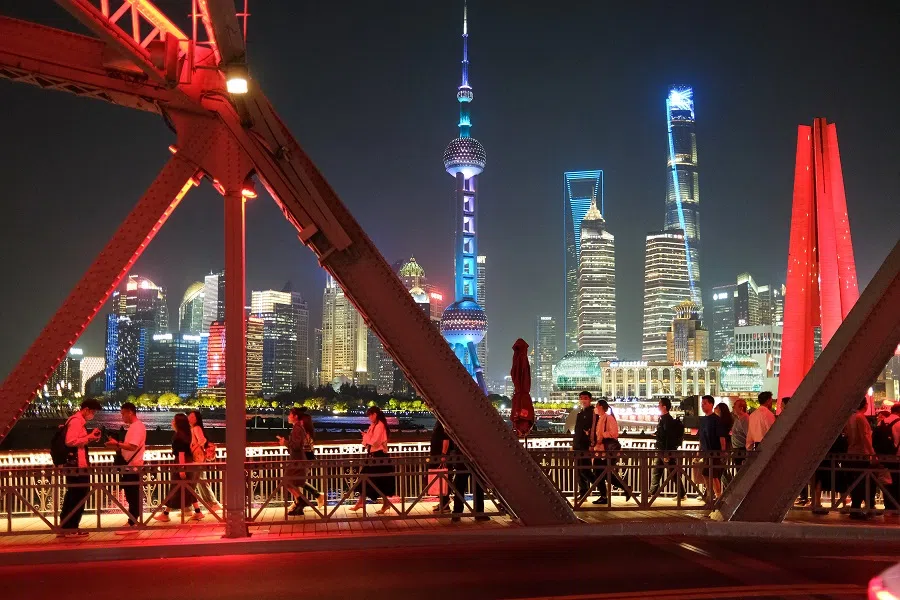
This is the conundrum when it comes to holiday arrangements: without annual leave, the authorities have no choice but to lengthen public holidays to artificially create a "mini long holiday" or "golden week", in order to spur domestic tourism consumption. And since they have difficulty taking leave, Chinese workers cannot take breaks according to their own needs, and can only be held hostage by official arrangements, working for long periods and then joining the holiday crowds.
Is an increase in holidays on the cards?
Though China's National Development and Reform Commission has explained that next year's Chinese New Year holiday arrangement is a "delicate exploration" of coordinating paid annual leave and public holidays, hoping to take the opportunity to implement paid leave, Chinese netizens clearly are not buying it.
...instead of targeting the people's paltry annual leave, the authorities should show their sincerity by mandating one more public holiday on Chinese New Year's Eve.
Netizens noted that even the legally stipulated five-day work week is hard enough to implement; to now transfer the duty of overseeing the provision and needs for holidays from between the government and the people to between companies and employees is irresponsible and avoids the real issue. Also, encouraging annual leave to be tied to public holidays goes against the wishes of netizens, who want to be able to flexibly arrange their own annual leave.
Some netizens also commented that instead of targeting the people's paltry annual leave, the authorities should show their sincerity by mandating one more public holiday on Chinese New Year's Eve.
Though it is a complicated legal process to increase the number of public holidays, given the precedent in 1999 following the financial crisis when three days were added, and with China's current economic slowdown, this idea does not sound too preposterous.
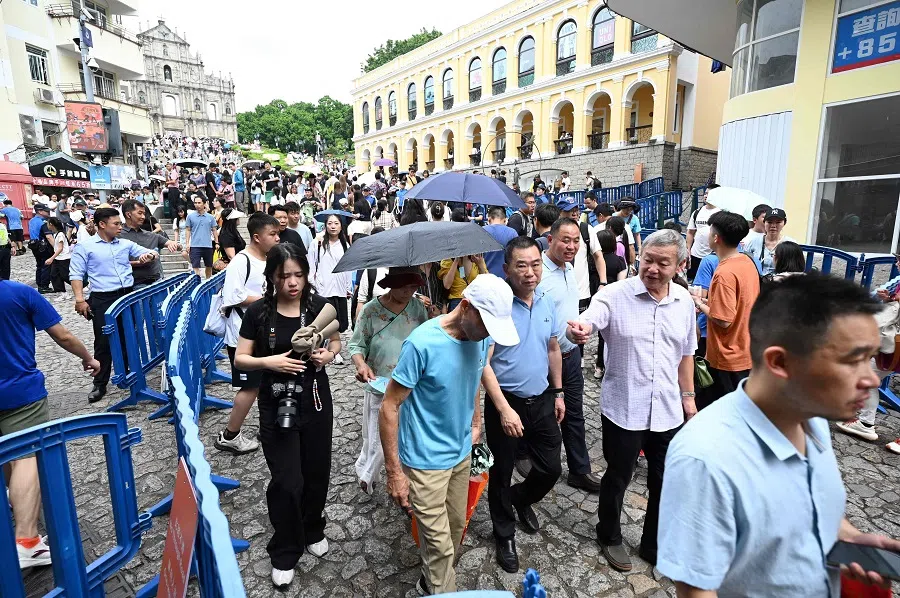
Former Global Times editor Hu Xijin said in a Weibo post on 25 October that he felt the Spring Festival holiday arrangement for 2024 is both a transition and a trial, setting the stage for eventually reinstating Chinese New Year's Eve as a public holiday, and lengthening the Chinese New Year holidays to four days.
Hu called for a "good things take time" mentality when looking at next year's Chinese New Year's Eve without a holiday, adding that public opinion should be encouraging and supportive, and people "should not let the good intentions of the State Council in making arrangements go unappreciated".
Netizens who left comments on Hu's Weibo post were naturally unconvinced, but the official Weibo account of the National Development and Reform Commission reposted Hu's analysis, with Hu jovially declaring that he was "indeed not talking rubbish" (胡说), in a pun on his surname.
As for whether this means that the authorities are indeed considering adding another public holiday, or simply reposting an article to "save face" amid the barrage of criticism, only time will tell as we observe the holiday arrangements in the coming years.
This article was first published in Lianhe Zaobao as "明年除夕不放假".




![[Big read] When the Arctic opens, what happens to Singapore?](https://cassette.sphdigital.com.sg/image/thinkchina/da65edebca34645c711c55e83e9877109b3c53847ebb1305573974651df1d13a)
